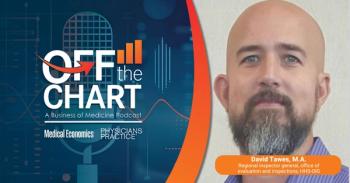
CMS Proposes Tweaks to Two Midnight-Rule
CMS issues proposed two-midnight rule modifications and the reduction in the role of recovery audit contractors.
One of the major concerns associated with all of the changes in the healthcare landscape over the past decade has been the erosion of physician autonomy in making medical decisions. The two-midnight rule did nothing to assuage any of these concerns. In fact, it may have created additional concerns because of the reimbursement issues associated with it.
Over the past two years, there have been multiple delays. In February 2014, an American Medical Association's (AMA) article indicated that, "[t]he Centers for Medicare & Medicaid Services (CMS) said Friday it is
"The rule stipulates an inpatient admission will be presumed reasonable and necessary upon a physician's expectation that a Medicare beneficiary
The
Here are some key takeaways for physicians:
• The 0.2 percent cut to inpatient payments as part of the two-midnight rule remains;
• Enforcement changes would reduce the role of recovery audit contractors (RACs) by utilizing quality improvement organizations (QIOs) and having RACs focus on high-denial rate hospitals; and
• Hospitals and physicians can bill under Part A for patients whose stay is expected to be less than two midnights, with the caveat that this will be determined on a case-by-case basis and not a repeal of the two-midnight rule. For physicians who are employed by hospitals or involved in bundled payments, this could have a significant impact.
In sum, the best way for physicians to defend their medical judgment is to document, take into consideration the opinions of ancillary care providers such as physical therapists and occupational therapists, and substantiate the medical necessity.
Newsletter
Optimize your practice with the Physicians Practice newsletter, offering management pearls, leadership tips, and business strategies tailored for practice administrators and physicians of any specialty.






